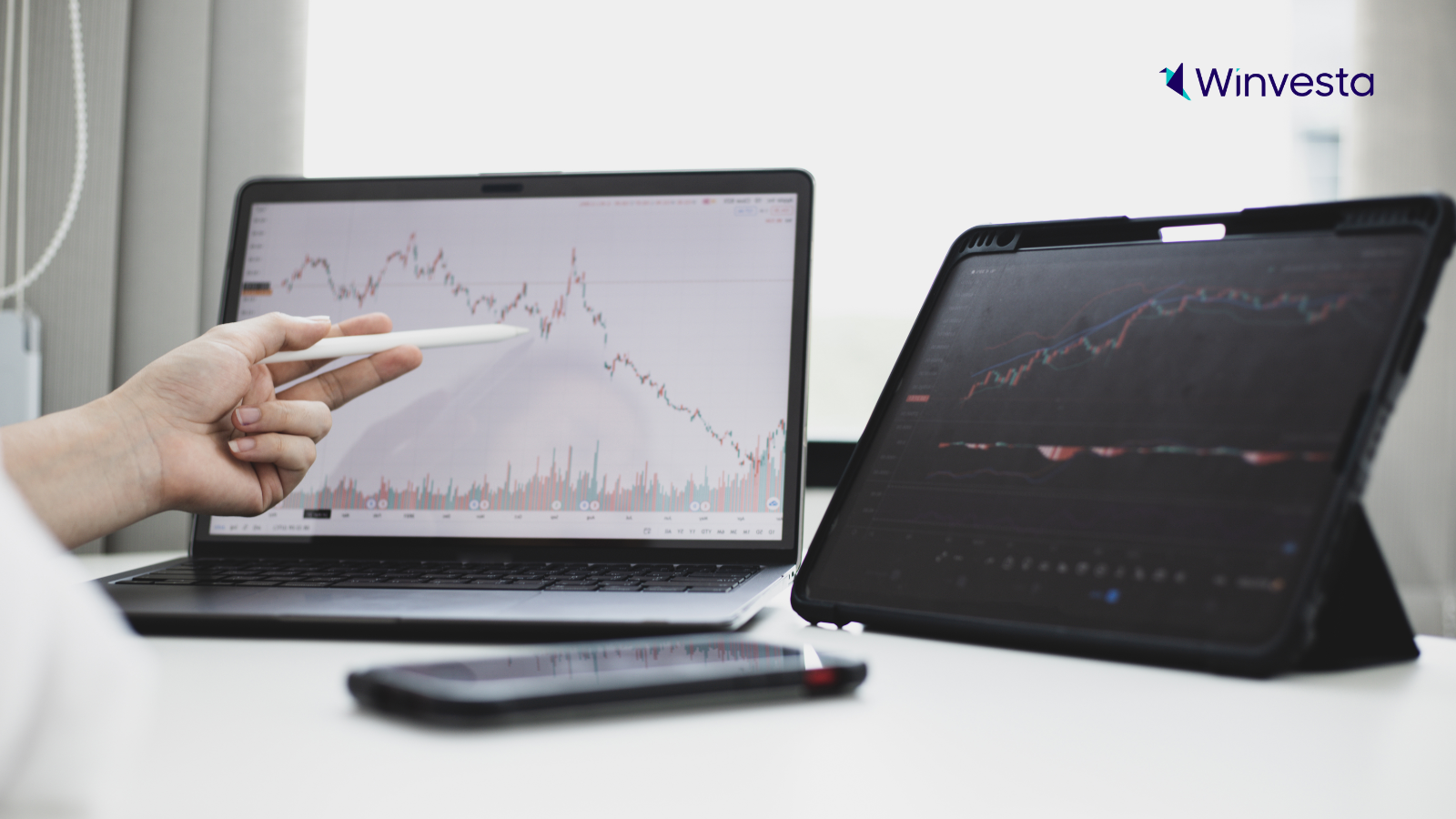Contents
- Entity 1 – Broker-Dealer in the US
- Entity 2 – Custodian
- Entity 3 – The SIPC
- How Much is the SIPC Protection?
- Entity 4 – The Investment Platform that the end investor uses
How Safe is it to Invest in US Stocks from India?
6 minutes read
14 May 2024

With the growing awareness about the Liberalized Remittance Scheme(LRS), the current volatility in the Indian economy, and the emergence of convenient platforms like Winvesta to invest globally, it is important to know if it is safe to invest in the US from India. To understand the safety of investing in the US, we must understand who controls and safeguards your money and investments.
This article gives you a deep dive into the different entities involved in the process of investing in the US and their functions.
Entity 1 – Broker-Dealer in the US
What is a Broker-Dealer?
A broker-dealer (BD) in the US is a person or an entity in the business of trading securities on behalf of its customers but may also trade for itself. As a broker, it can handle transactions and trade securities for its clients. On the other hand, as a dealer, it can initiate transactions for its own accounts. Such broker-dealers fulfill a variety of functions in the financial sector. They can provide investment advice to clients, facilitate trading activities, publish investment research, and raise capital, among others.
There are two types of brokers dealers in the US.
- A wirehouse BD: A firm that sells its products to clients
- An independent BD: An entity that sells securities from outside sources. For most US stock market investments, you will be dealing with this type of BD.
How is a BD regulated in the US?
In the US, broker-dealers are regulated by the Securities and Exchange Commission (SEC) under the Securities Exchange Act of 1934. All the BDs registered with the SEC, with a few exceptions, must be members of the Securities Investor Protection Corporation (SIPC) that protects and insures each client account held by the BD (more on that later).
FINRA (Financial Industrial Regulatory Authority) is an independent NGO regulating registered broker-dealer firms in the US under SEC’s supervision.
Responsibilities of FINRA include:
- writing and enforcing rules for all registered broker-dealer firms in the US
- examining BDs for compliance for these rules
- working towards implementing market transparency; and
- educating investors
Entity 2 – Custodian
A custodian is a financial entity that holds clients’ financial securities. If you purchase stocks in the US, the custodian holds them under a ‘street name’ or nominee name (usually in the broker-dealer’s name). The phrase “street name securities” refers to the securities that are electronically held with a bank, stockbroker, or custodian. A custodian is the link between the securities and the investors and is registered as the stockholder for the ultimate security holders, i.e., you. The custodian does not become the owner of the stocks that you purchased at any point in time. This practice helps reduce costs and complexity of the process of trading and allocating securities to each investor and improves market liquidity.
What is the Difference Between a Custodian Firm and a Broker-Dealer?
The primary difference between the two is that a Custodian is safekeeping your financial assets, whereas the BD offers trade execution services. Today, the brokerage firm also serves as a custodian for most retail investments, blurring the distinction.
Entity 3 – The SIPC
How are Your Funds Protected Under the US Laws? What happens if the BD or custodian fails?
Stock market investments in the US are protected under the Securities Investor Protection Act (SIPA) and overlooked by the Securities Investor Protection Corporation (SIPC). SIPC was created under the SIPA as a non-profit membership corporation.
How Much is the SIPC Protection?
In a rare case of liquidation (BD failure) under the SIPA, SIPC, and a court-appointed Trustee work to return customers’ securities and cash as quickly as possible. Within limits, SIPC expedites the return of missing customer property by protecting each customer up to $500,000 for securities and cash (including a $250,000 limit for cash only).
SIPC is an integral part of the overall system of investor protection in the United States. Its focus is extremely narrow: restoring customer cash and securities left with bankrupt or otherwise financially troubled brokerage firms.
How does the Claim Process work?
Generally, a liquidation begins after the court appoints a Trustee for a failing or failed Broker-Dealer firm. The Trustee, under the guidance of SIPC, works to restore cash and securities to affected investors as soon as possible.
Here are the steps involved in claiming the protection under SIPC:
Step 1: Claim Forms: Claim forms are made available on the Trustee’s website and will be mailed to each investor who held an account with the brokerage firm for the last 12 months.
Step 2: Submission of Claim Forms: Investors need to submit the claim form with the stipulated deadlines as per the instructions given. In case of failure to file the form within the given deadlines can result in the loss of full or partial claim amount.
Step 3: Review: After submitting the form, the Trustee will review and compare your claim to the brokerage firm’s book and records. You will receive protection for only securities and cash in your brokerage account.
Step 4: Determination Letter by the Trustee: You will receive a determination letter by the Trustee explaining their decision to allow or deny your claim request after review. In case you disagree with the Trustee’s decision, you have a period of 30 days from the day of issuance of the determination letter to object, in writing, to the court.
Step 5: Receive Initial Delivery of Securities and Cash: In case of a successful review and agreement with the Trustee’s determination letter, you need to sign some documents for the claim settlement. After signing and returning the necessary documents, the claim will be settled in the form of delivery of securities or cash under the SIPC limits.
Claims over SIPC Limits
Investors with claims over $500,000 may be eligible for an additional settlement. The settlement depends upon whether the Trustee has any investor property with the failed brokerage firm. Any payment of the investor property will be made on a pro-rata basis based on the net equity claim. In case the claim is still not fully settled, investors can opt for a general creditor claim for balancing their losses.
Entity 4 – The Investment Platform that the end investor uses
Indian investors trading in the US markets have a few platform options that provide a broker-dealer or exchange access. Each platform has a slightly different regulatory framework, so investors must consider the security associated with that while choosing one. Here is a quick comparison of the four main types of platforms, before we dive into details:
| Platform Type | FCA Regulated | SEC Investment Advisor | Tech Only | FINRA BD |
|---|---|---|---|---|
| Data Privacy | Very High | Low/Medium | Low | Low/Medium |
| Additional Protection over SIPC | £85,000 | Nil | Nil | Nil |
| Can perform KYC on its own | Yes | No | No | Yes |
| Compliance Bar | Very High | Low/Medium | None | Very High |
Let’s consider each of these points in detail now, and why they are relevant.
1. Data Privacy: UK and EU have some of the most stringent regulations when it comes to data privacy. UK’s Data Protection Act 2018 is the implementation of the General Data Protection Regulation (GDPR). FCA regulated platforms have to follow strict rules called ‘data protection principles’ for using personal data. This means your personal data can never be misused or distributed without explicit content and must be handled securely.
On the other hand, the US doesn’t have a federal-level general consumer data privacy or security law yet. Any US establishments thus don’t offer the same level of protection as the UK established entities.
2. FSCS Protection: The Financial Services Compensation Scheme (FSCS) is the UK’s statutory investors’ compensation scheme for customers of authorized financial services firms (FCA regulated). The FSCS protection covers up to £85,000 per person in case the firm is unable or likely to be unable to pay claims against it. This protection is only available to FCA regulated firms and hence other platform users can’t utilize it.
Since the end accounts of the customer are still with a FINRA registered broker, users of FCA regulated platforms also get the $500,000 SIPC protection like other platforms.
3. KYC Capability: FCA and FINRA regulated entities can conduct KYC of their customers, while other platforms have to rely on third parties or the end BD to complete the KYC. Owning the customer KYC creates seamless user experience and faster account creations (instantaneous), while third party KYC means it can sometimes take days to get an account.
4. Compliance Bar: FCA and FINRA licenses come with very heavy regulatory oversight. Getting either of these licenses can often take a year and the company directors have to go through an exhaustive vetting and training process. On the other hand, getting an SEC-registered investment advisory license is relatively straight forward and inexpensive. It takes only about two months to obtain, and is easy to maintain, though it does have moderate regulatory oversight.
While building Winvesta, we took a very progressive but protective regulatory approach. We wanted to provide a solution that would be regulatorily compliant, client protective, and meets the aspirations and needs of the clients. FCA registration was an obvious choice for us. Of course, having over a decade of financial services experience each in our leadership team helped us make the right choice.
When you choose Winvesta for being your global investing partner, you can be confident about the security of your assets and personal data. Our platform provides all the protections that a US investor would have locally, as would a UK-based investor. As we said before, in providing any regulated financial service, form trumps substance.
*Winvesta Ltd is an Appointed Representative of RiskSave Technologies Ltd which is authorised and regulated by the Financial Conduct Authority with FRN 775330

Contributed by Prateek Jain
He is the Co-founder & President of Winvesta. Before Winvesta, Prateek worked at Deutsche Bank for 11 years



